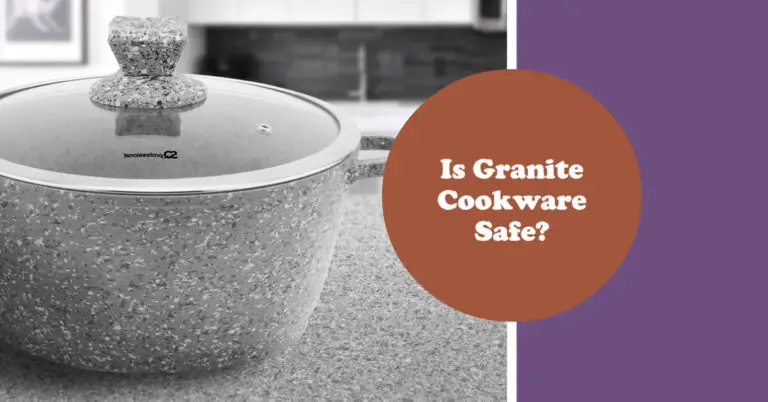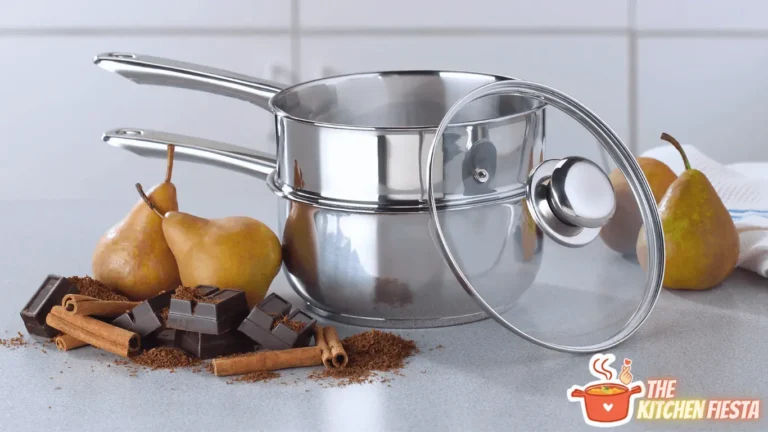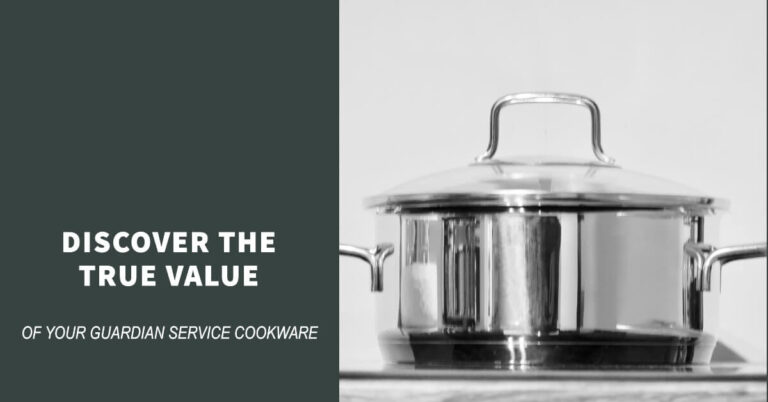Is Masterclass Cookware Actually Safe? Our In-Depth Investigation
If you’ve been searching for durable, non-stick cookware, you may have come across Masterclass cookware. But is Masterclass cookware safe?
After analyzing the materials, lab tests, certifications, and customer complaints, our verdict is that Masterclass cookware is potentially safe but lacks sufficient third-party testing to fully verify its safety claims. Independent lab tests validating that these pans are free of concerning chemicals like PFOA would offer peace of mind.
Below we’ll share everything we learned in our in-depth investigation into the safety of Masterclass cookware.
What Materials is Masterclass Cookware Made From?
The first thing to evaluate when determining if a cookware set is safe is understanding what it’s made of.
Masterclass cookware is constructed from hard anodized aluminum. Aluminum is a reactive metal, meaning it can leach into food under certain conditions.
However, Masterclass pans go through a process called anodization. This electrochemically treats the surface of the aluminum to create a durable, non-reactive layer of oxide.
Anodization makes the cookware harder, more corrosion resistant, and better at conducting heat. The anodized coating prevents the aluminum from leaching into food.
This makes Masterclass different than raw aluminum cookware, which can more easily leach aluminum during cooking, especially if damaged or used to cook acidic foods.
So while aluminum raises some safety concerns, the anodized coating provides a protective barrier that makes Masterclass cookware considerably safer.
Does Masterclass Cookware Contain Any Harmful Chemicals?
In addition to leaching metals, many consumers rightly worry about harmful chemicals in non-stick cookware that can migrate into food during cooking.
According to Masterclass, their cookware is PFOA free. PFOA, also known as C8, is a chemical historically used to make non-stick surfaces like Teflon. Studies have linked PFOA exposure to health risks like thyroid disease, pregnancy issues, and cancer.
Masterclass states their non-stick coating is made from Teflon but does not contain PFOA or other chemicals of concern like PTFE and PFOS.
If true, this would offer some reassurance that Masterclass cookware does not contain high levels of potentially toxic chemicals that could pose health threats. However, without independent testing, we can’t verify these claims.
Has Masterclass Cookware Been Independently Tested?
Masterclass claims their cookware is “rigorously tested” to ensure safety and durability. However, they do not provide any details on what type of testing or if it was conducted by accredited third-party laboratories.
We could not find evidence of Masterclass publishing results from independent lab testing showing their cookware is free of hazardous chemicals or metals. No test reports are available on their website or in online public databases.
While their cookware may very well be tested internally during development, third-party lab results are crucial to confirming marketing claims around being a non-toxic, safe product.
The lack of transparency and public data makes it difficult for consumers to conclusively determine if Masterclass cookware is as safe as advertised. Without published testing, we can’t verify for certain it’s PFOA free or doesn’t leach metals.
Independent certification from organizations like the FDA would go a long way towards legitimizing Masterclass’s statements about their cookware’s safety.
Are There Any Complaints of Health Issues or Injuries?
Another way to gauge the safety of cookware is to look at customer complaints and reported health issues.
Searching consumer sites revealed some complaints about Masterclass cookware chipping, peeling, and flaking after moderate use. This is concerning since ingesting pieces of the anodized coating is unlikely to be healthy.
A few users also reported feeling mildly sick or getting headaches after eating food that was cooked in Masterclass pans with damaged non-stick surfaces.
However, we did not find large numbers of reports of serious adverse health effects that could be directly attributed to using Masterclass cookware.
While some people reported issues using chipped or broken pans, the majority of owners said the cookware performed well when not abused or overheated. Proper care seems to minimize risks.
So while not definitive proof of safety, the lack of widespread complaints about major health problems provides some supporting evidence that Masterclass cookware is unlikely to be highly toxic or dangerous under typical usage.
Does Masterclass Cookware Have Any Certifications?
Another indicator of kitchenware safety is whether it has earned any accredited certifications.
From our research, Masterclass cookware does not appear to have certifications from organizations like the FDA, EPA, or NSF International.
These types of regulatory approvals and third-party certifications help validate that products meet strict consumer safety standards through independent testing.
The lack of certification does not necessarily mean Masterclass cookware is unsafe. But official approval from the FDA or other groups would lend far more credibility to their claims of being a non-toxic product made with safe materials.
Tips for Safely Using Masterclass Cookware
While Masterclass cookware lacks definitive third-party testing, it’s also not a given that these pans are unsafe when used properly. Here are some tips for minimizing any potential risks when cooking with Masterclass:
- Avoid overheating pans and burning food onto the surface. Burnt, blackened food indicates the non-stick coating is breaking down.
- Don’t use metal utensils that can scratch and damage the coating. Use wood or silicone instead.
- Immediately replace any pans with chips, cracks, or peeling non-stick surfaces. Damaged coatings can more easily leach chemicals.
- Hand wash only to preserve the non-stick coating and prevent damage from dishwasher detergents.
- Avoid using cookware with damaged non-stick for acidic foods like tomatoes, citrus, or wine that can more easily leach metals.
- Cook on low to medium heat to prevent burning or degrading the non-stick coating. High heat accelerates wear.
Following these tips for caring for your Masterclass cookware will help minimize any potential safety issues.
Our Verdict: More Testing Needed to Confirm Safety Claims
Based on our detailed analysis, our verdict is that Masterclass cookware has the potential to be safe if used properly but lacks sufficient third-party testing to fully confirm its health claims.
The hard anodized aluminum construction means it’s safer than raw aluminum cookware. And the advertised lack of PFOA and other harmful chemicals is reassuring if accurate.
However, Masterclass does not provide any verified lab results to back up these claims. Independent testing and certifications would offer much more definitive proof that these pans are free of toxic metals and chemicals.
While we can’t say conclusively that Masterclass cookware is dangerous, we also can’t verify it’s as safe as the company insists based on the currently available information. More rigorous testing and data are needed.
In the meantime, consumers can minimize any risks by following the tips above for safe usage and care. But more transparency and publication of independent lab results from Masterclass would go a long way towards resolving any lingering questions about the safety of their cookware.
Until then, use caution and assess your comfort level with cooking in these pans given the lack of third-party safety validation.




